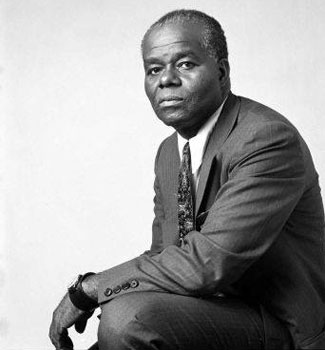“History is a clock that people use to tell their political and cultural time of day, it is also a compass people use to find themselves on the map of human geography. History tells a people where they have been, what they have been, where they are and what they are. Most importantly history tells people where they still must go and what they still must be.” –John Henrik Clarke
The namesake of Cornell University’s Africana Library, John Henrik Clarke, reminds us of the important role that studying history plays in the shaping of our reality. In this COVID-19 environment many of us wear a mask as a means of protecting each other, and in too many cases going to work or the grocery store seems like a life-and-death decision. Dr. Clarke may very well want us to understand how people of African descent in the United States have been disproportionately affected by this virus, as recently reported by The Annals of Epidemiology (July 2020). Having access to information like this report is important to researchers, or anyone who wants to gain a better understanding of how COVID-19 impacts the Black community. The report says the following:
“Emerging evidence suggests that black Americans are at increased risk for COVID-19 morbidity and mortality. Although it may be counterintuitive that a newly identified virus that can infect anyone would rapidly manifest pronounced racial disparities, a consistent pattern has been reported across multiple states, showing that black Americans comprise a disproportionately greater number of reported COVID-19 cases and deaths compared with other Americans.”
Providing people with direction to various aspects of how COVID-19 is affecting the Black community is in part why I see my role as the Director of the Africana Library, and Curator, Africana Collections, Division of Rare and Manuscript Collections as so important. I see my role as not only collecting resources about Black folk in Africa and the African Diaspora, but also providing a space where we can have discussions on important topics of the day.
For example, Margaret Washington, Marie Underhill Noll Professor of American History at Cornell, wrote an opinion piece for the Cornell Daily Sun, COVID-19 Since 1619. This is an eye-opening essay where Professor Washington connects the George Floyd killing with the historical narrative of racism that Blacks have endured in America for centuries. One of my favorite lines in Professor Washington’s essay is when she made reference to what Malcolm X said to a Black audience, “We did not land on Plymouth Rock … Plymouth Rock landed on us.” In other words, Black folk have been catching hell from the very beginning when their ancestors first arrived on the shores of America. Professor Washington further makes her point on the racist treatment of Blacks by saying:
“In Notes on the State of Virginia (1785), Thomas Jefferson proclaimed Blacks physically, biologically and intellectually inferior.” She continues and writes, “The Constitution, as the ‘law of the land,’ codified institutional racism and white supremacy. African Americans counted as 3/5 of a person to increase slaveholders’ representation; the Atlantic slave trade continued for another 20 years; federal authority put down enslaved insurrection and returned ‘fugitives;’ the Second Amendment empowered states to create slave patrol militias and permitted individuals to bear arms so slave masters could protect themselves. From the nation’s beginning, seeking Black freedom was a federal crime.”
I can almost see Dr. Clarke asking his audience, where do you think the above passage places Blacks on the map of human geography?
Over the summer, we lost two giants who lived their lives addressing the ills that Professor Washington wrote about. The two giants are John Lewis and C.T. Vivian. They were most noted for their work during the civil rights movement. This was an era in which they fought for the desegregation of buses and lunch counters, not to mention voting rights for Blacks. An era in which Rosa Parks refused to give up her seat on a bus in Montgomery, Alabama on December 1, 1955, so we could all stand tall. Her mindful act launched a movement in which Blacks demanded to be treated with dignity and respect.
For me one of the most impactful parts of my job is creating a space where people can learn about the resources that will teach them different aspects of history as John Henrik Clarke would say. Recently I authored two library guides: Black Lives Matter and How to Be An Antiracist. Hopefully they will help guide people in these ongoing discussions of race, prompted by the national and global outcry that followed the tragic killings of George Floyd, Breonna Taylor and Ahmaud Arbery. In these times we need the Africana Library more than ever. — Kofi Acree
